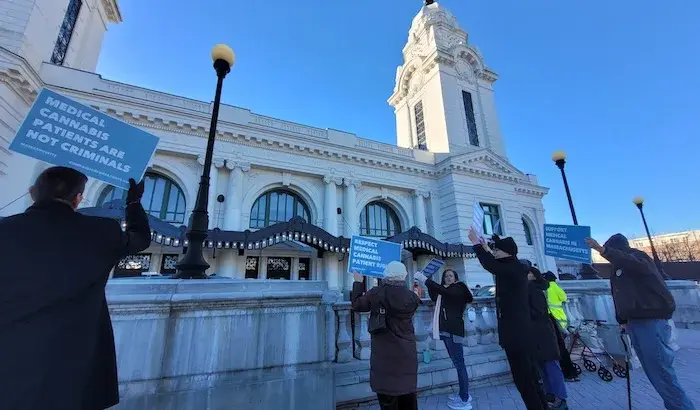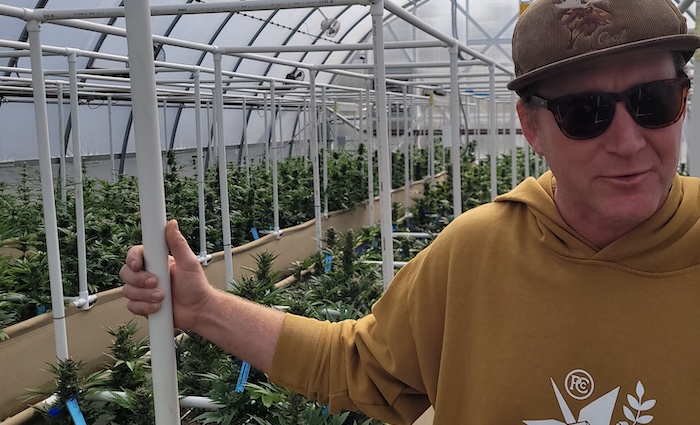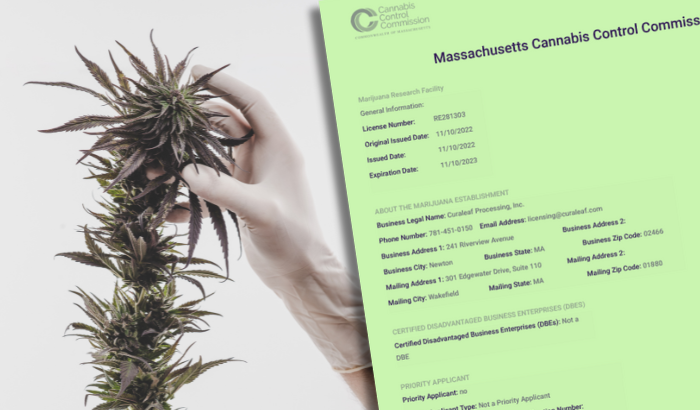
Regulators to host in-person registration event plus listening session to examine dwindling access for medical cannabis patients in Massachusetts
While addressing Massachusetts legislators at a hearing of the Joint Committee on Cannabis last month, Jeremiah MacKinnon suggested that the Cannabis Control Commission is allowing for the decimation of the state’s medical marijuana program in plain sight. As an example, the president and executive director of the Massachusetts Patient Advocacy Alliance noted how the agency has had zero new medical-side applicants this year.
Even in dispensary-rich Boston, there has been a notable loss of access. Of seven medical dispensaries in Massachusetts that have gone under in 2024, three were in the Hub, where the number of med shops resultantly went from six to three, leaving the capital markedly underserved.
In his virtual testimony to Beacon Hill lawmakers, MacKinnon said that his group has communicated with CCC members and staff, but without any real results on the issues it is trumpeting, among them changes that could allow for adult-use dispensaries to serve medical patients.
But now there may be some momentum. Similar to how the agency has vocally recognized other longstanding problems like worker safety since that October hearing, the commission is also acknowledging the need to address clear problems with the state’s medical program, all while bolstering its outreach to the population that needs it.
CCC to host in-person medical registration event
In a presentation given at the body’s Nov. 14 hearing, CCC Chief of Staff Andrew Carter and Constituent Services Manager Kate Fiske announced an upcoming in-person registration event to help “qualifying patients who have received a certification from a healthcare provider complete their registration with the Medical Use of Marijuana Program.” The open house will take place from 10am to 3pm during the CCC’s Dec. 12 public meeting at the agency’s Worcester headquarters.
“Members of the Constituent Services team will be available to support qualifying patients and caregivers with new and renewal registrations. … Qualifying patients must have an active medical certification from their healthcare provider and all attendees will need to bring appropriate supporting documents as outlined on [the CCC’s] website.”
Some of the December programming will resemble outreach that commissioners have done at senior centers. Organizers will have access to remote interpreters for non-English speakers.
Fiske said that her office is open to suggestions about how to get the word out about these events, and is considering collaborations with councils on aging. They may also coordinate with the Department of Public Health.
“We have a vision for how we can move this around and service patients in the community as well,” Fiske said.
“Hopefully this is the first of many [in-person registration events] to come,” Commissioner Kimberly Roy said.
Medical listening session in new year
Beyond that initiative, the CCC will host a dedicated listening session on the medical program in the new year. Dwindling patient access will be the central and overarching topic, but commissioners and advocates alike will also touch a range of tangents.

Another issue likely to come up at the medical hearing pertains to how multiple states recognize Massachusetts medical cards, but we don’t reciprocate. At last Thursday’s meeting, Commissioner Roy said it’s ultimately up to the state legislature to change reciprocity rules, but in the meantime, “that doesn’t mean we can’t opine on it.”
Finally addressing the vertical integration requirement
For years, MacKinnon and MPAA have advocated for a change that would allow adult-use facilities to get in on the dwindling medical market. In his October testimony at the State House, he said “patients should never be burdened with having to pay more for their medicine because the commission” is addressing other priorities.
In Boston, for example, any number of more than 30 adult-use dispensaries could be serving patients, but they’re not currently allowed to because they aren’t vertically integrated, meaning they don’t also cultivate crops and make products.
On Beacon Hill, the MPAA is pushing legislation, An Act Relative To Vertical Integration Of Medical Marijuana Businesses, which emphasizes the urgency requested and the hardships endured by MPAA members. Considering what commissioners said last week, there will also likely be more pressure coming from the CCC side moving forward.
“We have to talk about vertical integration,” Commissioner Ava Callender-Concepcion said remotely last Thursday. It was her first meeting back since taking off for medical leave in August. “I want to put that up front as something to potentially have a [public listening] session around exclusively.
“Thats the first problem I think we really should make a concentrated effort to focus on in the near future.”
























